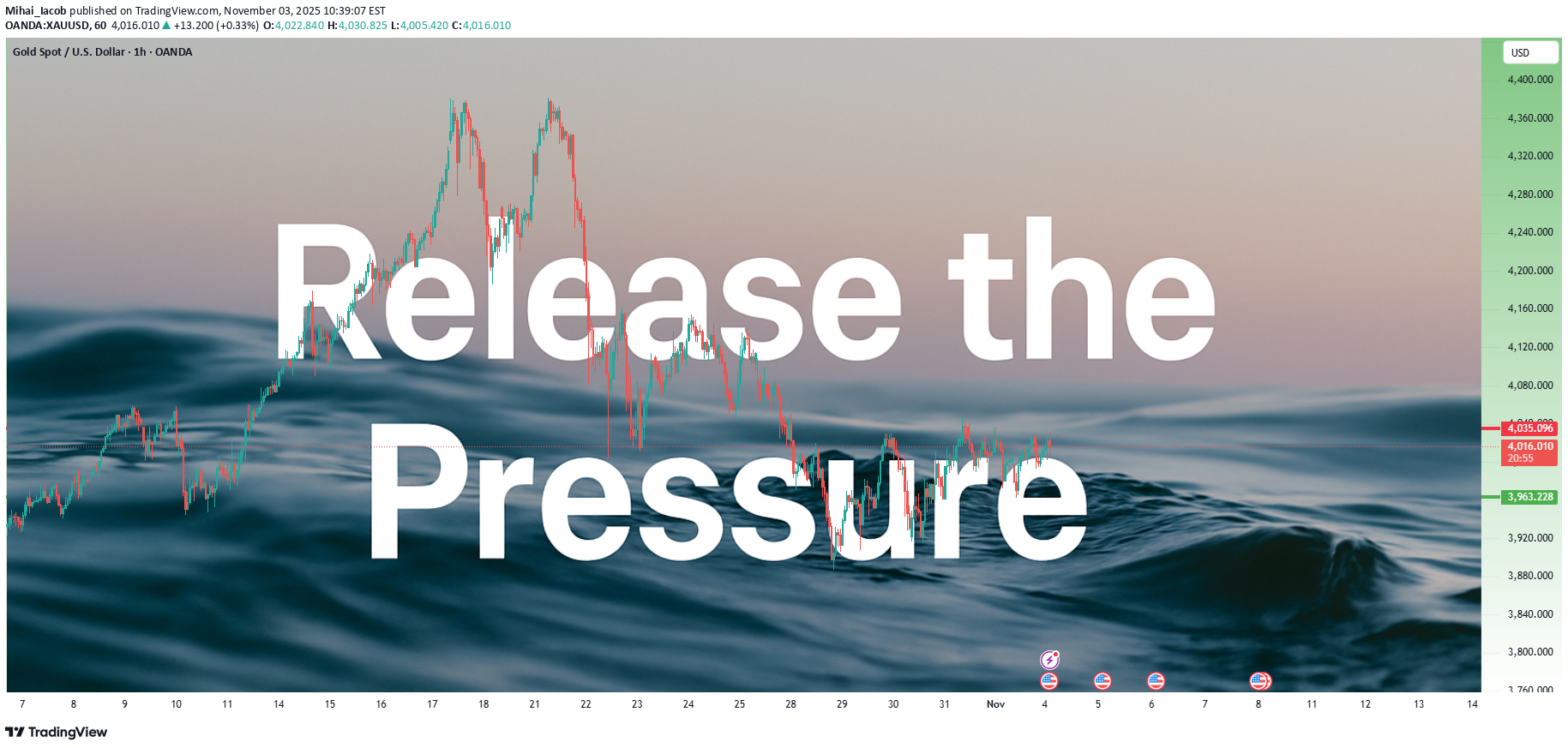Technical analysis by Mihai_Iacob about Symbol PAXG on 11/3/2025

Mihai_Iacob
چرا معاملهگران آرام بیشتر پول در میآورند؟ راز موفقیت در بازار!

One of the most overlooked psychological factors in trading is pressure — the silent force that makes you enter trades too early, exit too late, and misread what’s actually happening on the chart. The truth is simple: When you relax, you trade better. The Illusion of “Always Doing Something” Many traders feel that if they’re not in a trade, they’re missing out. The market becomes a constant test of patience — and silence between trades feels unbearable. That’s when poor decisions appear: forced entries, revenge trades, and overtrading to “feel productive.” But the market doesn’t reward effort; it rewards timing. Trading well often looks like doing nothing most of the time. You wait, you observe, and you strike when the setup aligns. This is where the relaxed mindset beats the pressured mindset every single time. Example: Gold (XAUUSD) Between 3960 and 4030 Let’s take gold as an example. As explained in my recent analysis, we have two clear levels to watch — 3960 and 4030. Price is currently trading in between. Even though it may look like it’s pressing upward and could form an ascending triangle, clarity only comes with a real breakout, not with anticipation. A pressured trader will often feel the urge to predict — to “get in early” before confirmation. But the calm trader simply waits. They know that between levels, price action is noise, not opportunity. And when clarity comes — either through a clean breakout or a rejection — the decision is obvious and stress-free. This is what “releasing the pressure” looks like in practice: You don’t force a trade. You let the market reveal the next step. Why Pressure Kills Performance Pressure doesn’t just come from the charts — it comes from expectations. The trader who needs to make x$ per day will subconsciously search for confirmation that a trade exists. Charts suddenly look clearer than they actually are. Bias replaces logic. And objectivity, which is the foundation of good trading, fades away. In reality, the more you need to make money from trading, the harder it becomes to do so. That’s not because the market is cruel — it’s because the human brain under stress stops processing probabilities correctly. The Paradox of Ease Every trader eventually experiences this paradox: The less you try to “make something happen,” the more naturally good trades appear. This isn’t mystical — it’s psychological. When the mind is calm, your ability to notice quality setups improves dramatically. You stop trying to control the market and start aligning with it. It’s the difference between chasing a wave and surfing one. Creating Space to Breathe The professional approach to trading is not about constant activity — it’s about creating the conditions where clarity thrives. That means reducing pressure in three ways: 1. Detach from daily profit goals. The market doesn’t care about your personal targets. Focus on setups, not outcomes. 2. Allow financial breathing room. When your rent, bills, and daily life depend on your next trade, emotional clarity disappears. Build a secondary income or savings buffer — not for luxury, but for mental freedom. 3 . Redefine success. A good trading day is not one with profit — it’s one with discipline. When you measure success by process, not by dollars, you take power back from the market. Final Thought Most traders lose not because they lack skill, but because they trade under pressure. The weight of expectation distorts perception, and the market punishes impatience. Release the pressure — mentally, financially, and emotionally. When you do, trading starts to flow the way it was meant to: Quietly, naturally, profitably.